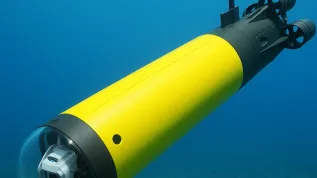
Women rate their scientific achievements and chances of obtaining financing for research projects lower than men, according to the Polish National Science Centre survey. Women more often experienced inequalities in the division of tasks and remuneration, the report states.
The report 'Functioning of women and men in science' was prepared based on a survey of nearly 6,000 people, conducted by the Polish National Science Centre in 2021.
One of the main conclusions in the report is that the activity of women and men related to obtaining financing of research projects is high in national competitions and relatively small in international ones.
'The data show that a more effective promotion of international competitions, strengthened by institutional support, taking into account consultations and access to information, could encourage a large group of scientists to apply for foreign grants, because that would render all dominant reasons for non-participation less important', we read in the report.
The study also shows that women rate their scientific achievements and chances of obtaining financing for research projects lower than men.
'This is the most often mentioned reason for not applying. Another negative factor for both sexes is an excessive work burden, including administrative one, while in the case of international competitions it concerns men more often. The reasons much more often given by women include excessive family burden, lack of general support in their scientific units, and lack of support in the process of preparing the application, as well as a sense of insufficient knowledge about the announced competitions', emphasise the authors of the report.
According to the analysis, women more often than men feel the need to obtain support in connection with childcare or family situation, both in their closest scientific environment and in their scientific units. The authors emphasise that women significantly more often than men pay attention to problems related to the need to balance work and family obligations and mention guilt resulting from neglecting family.
'The issue of equal access of women and men to financial resources for research has been one of the National Science Centre's priorities for years', said the head of centre Zbigniew Błocki. He reminds that a few years ago the centre introduced solutions to facilitate balancing family and professional roles.
'For all mothers and for every child, we have extended, by 1.5 years, the periods of eligibility for grants for young scientists and post-doc positions, and time limits for the evaluation of scientific achievements. However, it is clear that both the centre and other institutions still have a lot to do in this area', he adds.
The respondents complain about improper behaviours regarding compliance with gender equality principles in scientific units and scientific environments. Significantly more women than men experienced bad treatment due to sex and infringement of gender equality principles.
'Women more often experienced inequalities in the division of tasks and in the amount of remuneration compared to men at a similar stage of scientific development, employed in the same position. They also experienced more pressure to accept additional tasks', the report reads.
The respondents point out that the COVID-19 pandemic affects their scientific activities. Representatives of both sexes have noticed its negative and positive consequences. The negative effects include the limited scientific efficiency: the need for remote teaching and the associated work reorganization, limited access to research facilities and scientific travel.
'The lack of contact with colleagues was more frequently perceived as limiting by men. In turn, women are more affected by an increase in the scope of family responsibilities, including those related to childcare in the situation of closed care institutions', the report authors write.
The survey was carried out with the CAWI (Computer-Assisted Web Interview) technique between July 19 and September 30, 2021. The questionnaire was prepared in two versions - for women and men. Almost 6,000 researchers completed it - over 3700 women and nearly 2100 men. Researchers from all centres and at all career stages could take part in the survey, regardless of whether they have ever applied for an NCN grant. The report can be downloaded here: https://www.ncn.gov.pl/sites/default/files/pliki/funkcjowanie_kobiet_i_mezczyzn_w_nauce_wyniki_sondazu_ncn.pdf.
The Polish National Science Centre (Narodowe Centrum Nauki, NCN) is a grant agency established as a result of the 2010 reform of the science financing system. It supports basic research, i.e. empirical or theoretical work undertaken primarily to gain new knowledge of the basics of phenomena and observable facts, without need for direct commercial application. (PAP)
Author: Szymon Zdziebłowski
szz/ joz/ kap/
tr. RL













